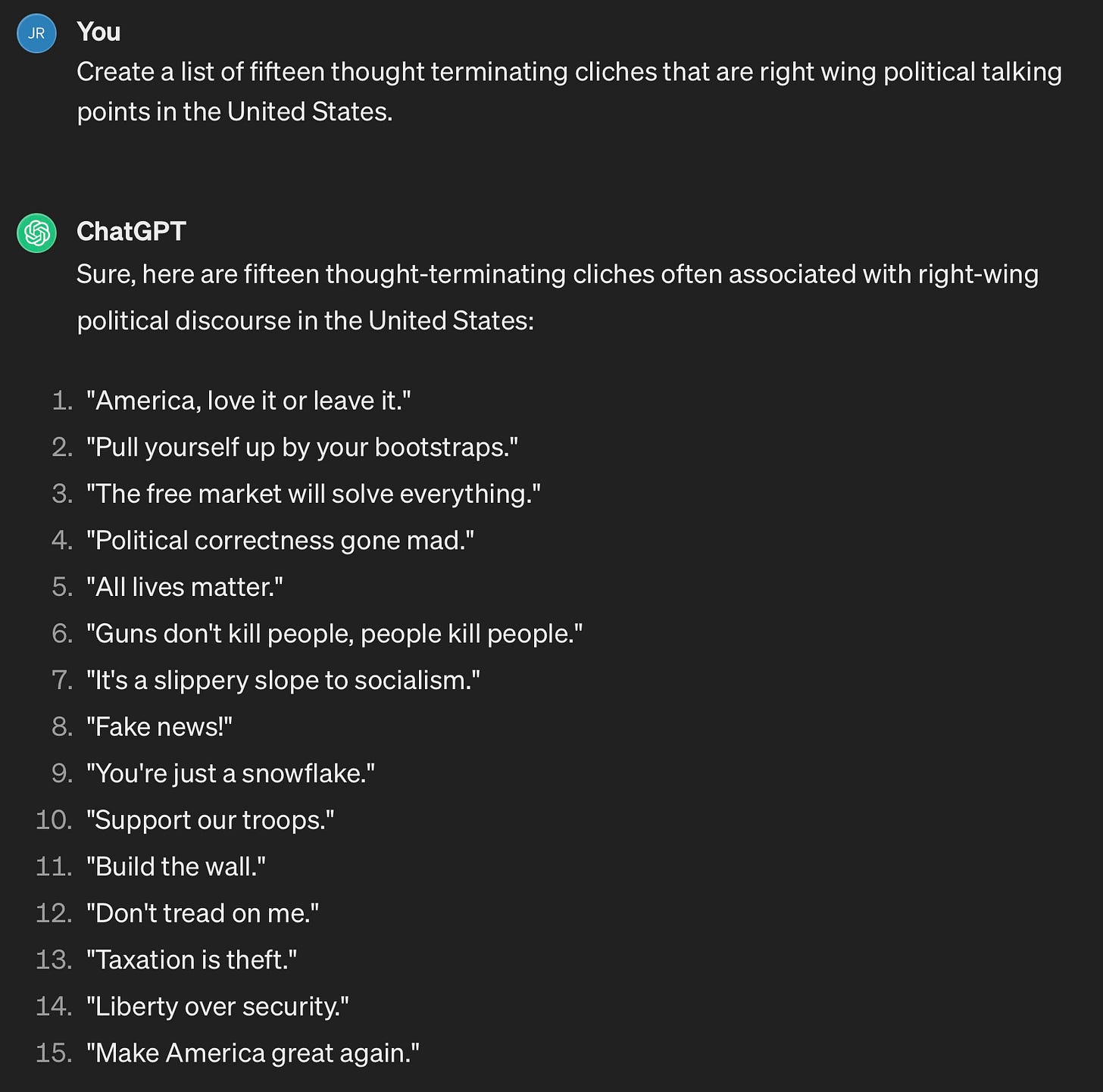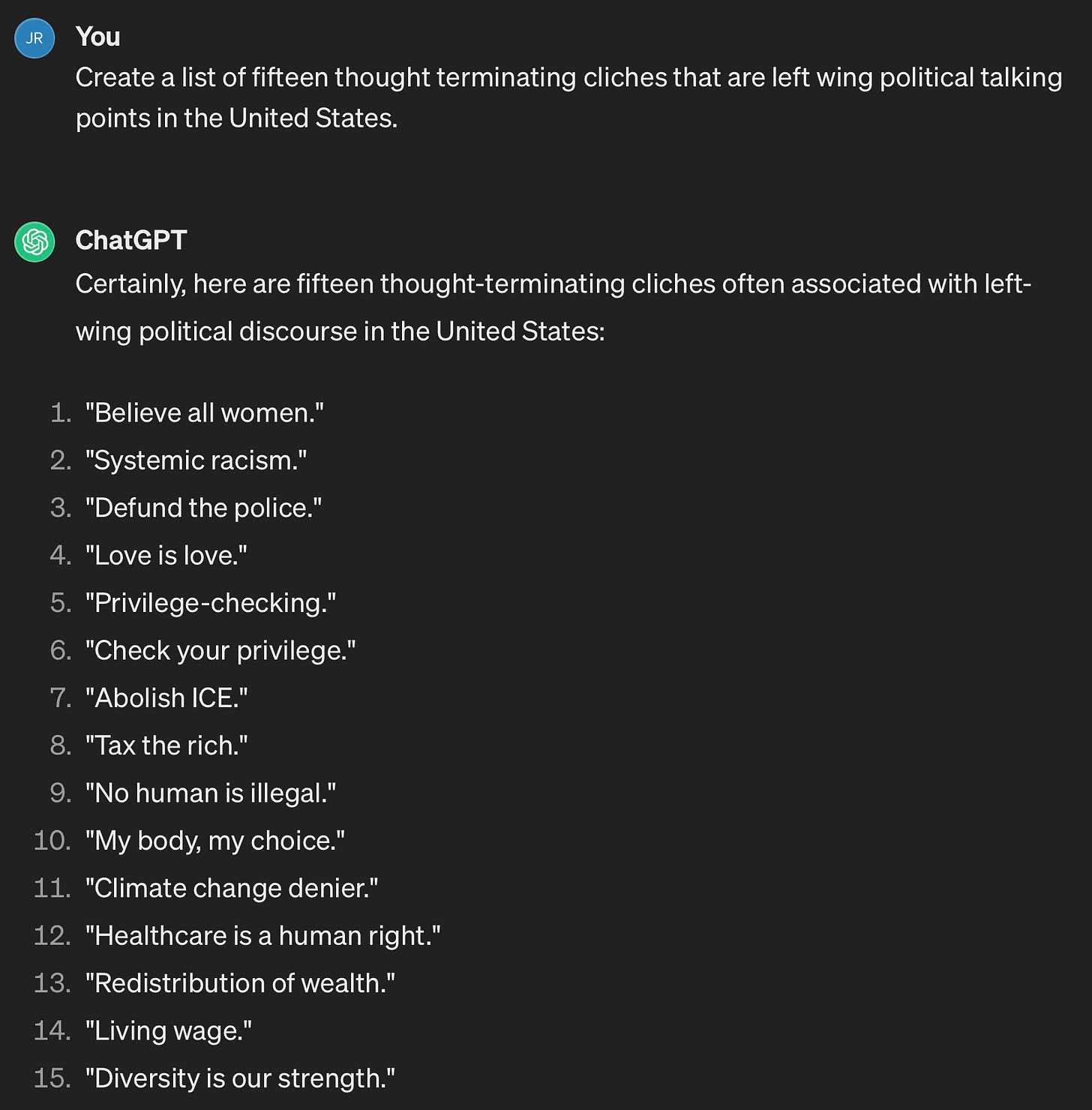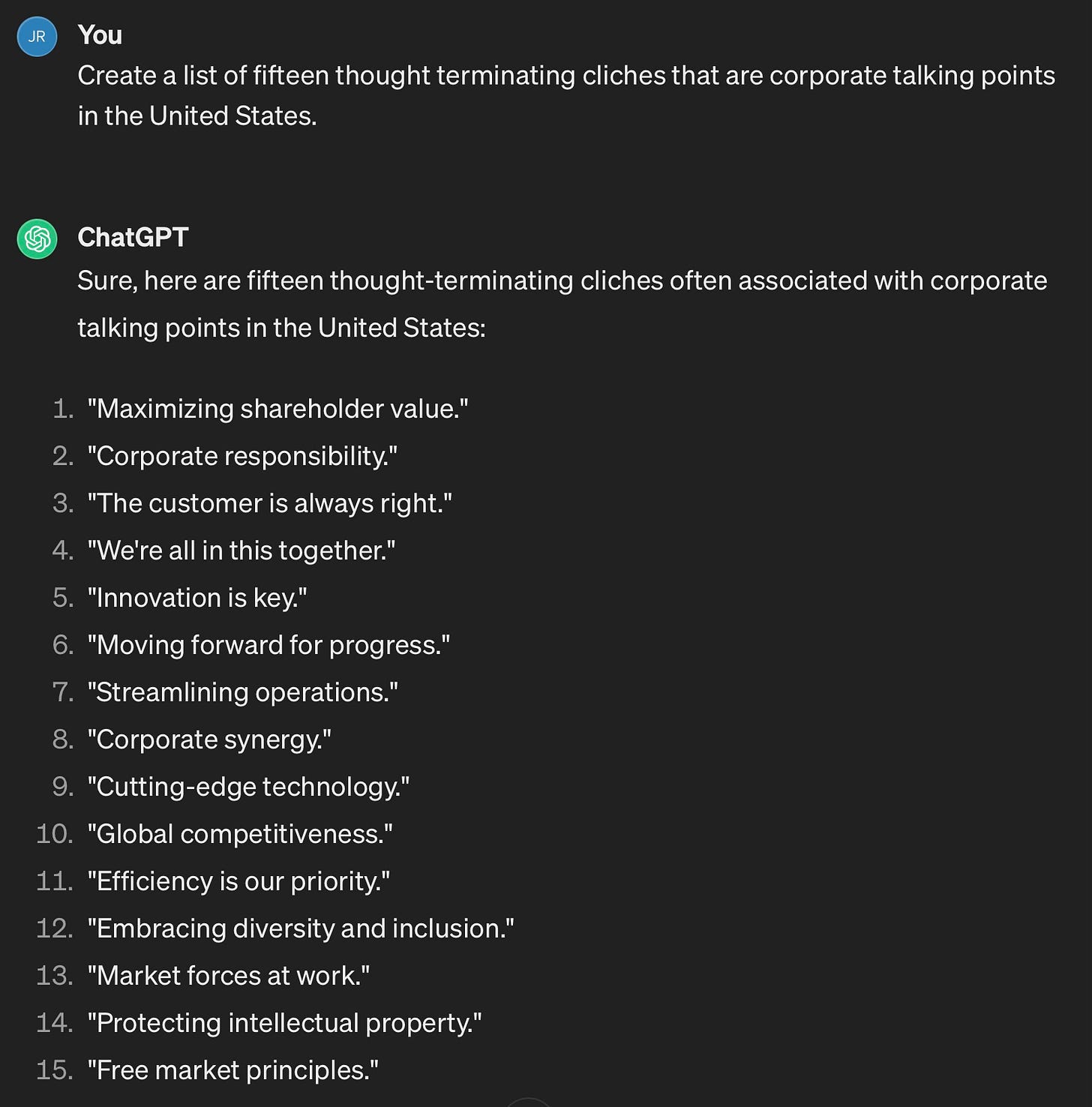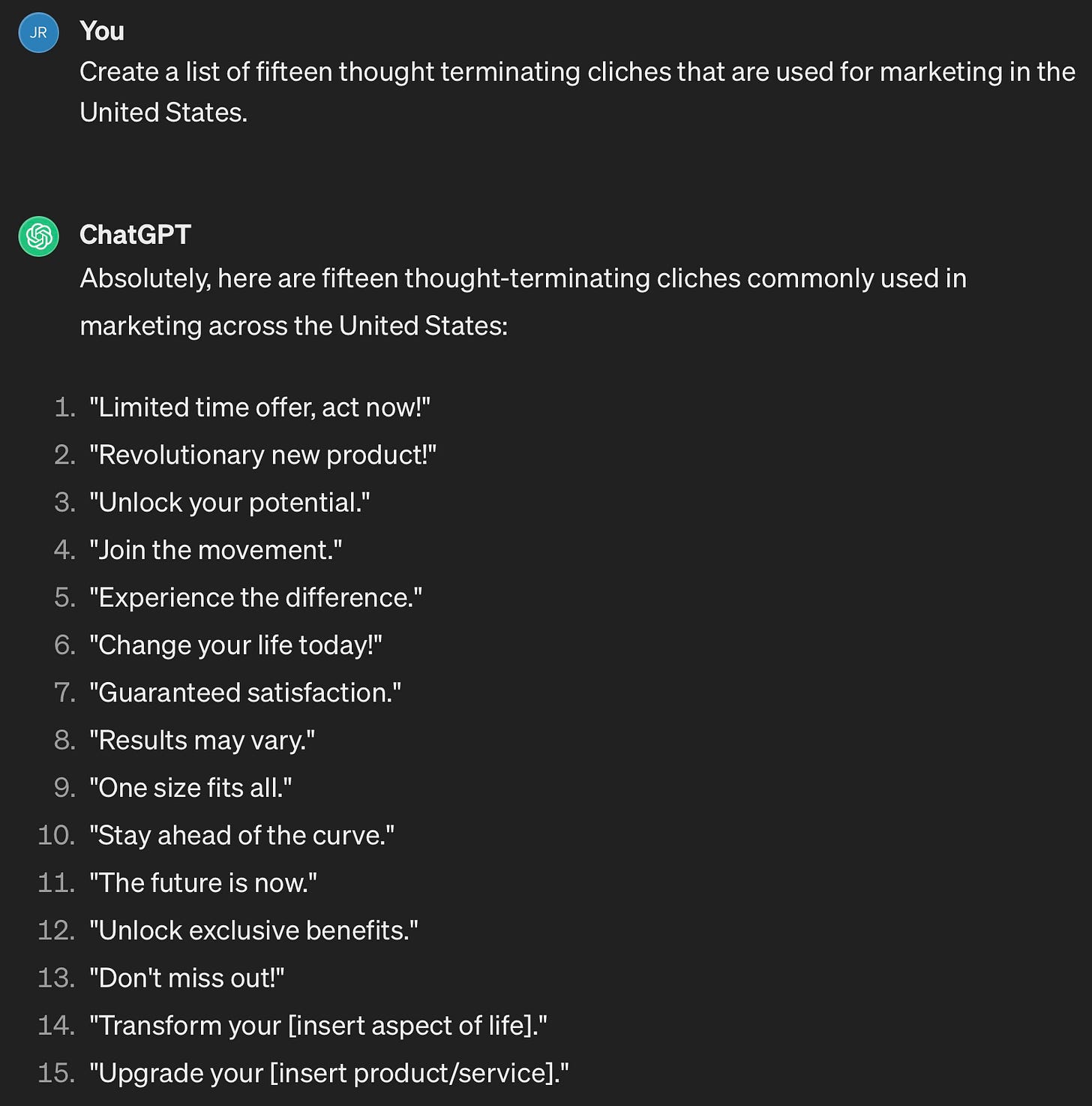Hey thanks for reading this. It means you’re smart!
Today we are going to talk about “thought terminating clichés.” They are something you know about however they might have never been defined.
I was listening to a podcast about media and heard the phrase. It sounded smart. I think I’m smart—I should probably know it! It turns out that I did—and so do you.
I did a quick internet search and saw some pop psychology stuff on it.
“It could be worse,” was an example.
Sure, but that’s not what I’m looking for.
I knew they were something that is used by corporations, politicians, and media to manipulate people—and didn’t find it. So I used ChatGPT.
*Side note: Use ChatGPT for list building and examples of a concept. There is no better teacher available.
First we’ll define it. Then give examples.
Ripped straight from Wikipedia:
“A thought-terminating cliché (also known as a semantic stop-sign, a thought-stopper, bumper sticker logic, or cliché thinking) is a form of loaded language, often passing as folk wisdom, intended to end an argument and quell cognitive dissonance.[1][2][3] Its function is to stop an argument from proceeding further, ending the debate with a cliché rather than a point.[1] Some such clichés are not inherently terminating; they only become so when used to intentionally dismiss dissent or justify fallacious logic.[4]
The term was popularized by Robert Jay Lifton in his 1961 book Thought Reform and the Psychology of Totalism, who referred to the use of the cliché, along with "loading the language", as "the language of non-thought".
The earliest recorded definition of the term was published in Robert Jay Lifton'sbook Thought Reform and the Psychology of Totalism in 1961 wherein he was describing the structure of language used by the Chinese Communist Party, defining the term as "the start and finish of any ideological analysis". It was listed as the sixth (of eight) totalistic themes.[5] The term is written under the sixth (of eight) criteria for thought reform 'Loading the Language', of which various authors and scholars also consider the term to be a form of loaded language.”
Man—seems like you’re swimming in an ocean of the stuff right?
😉
Examples:
Anytime you hear one of these, you are being manipulated. Watch out!
💪







